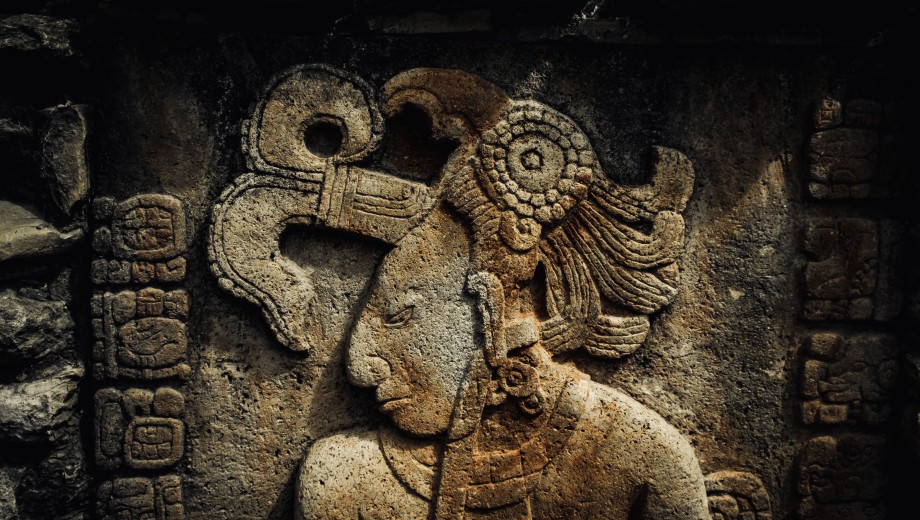Carlos Cisneros, AM’18, and Norman A. McQuown (1914–2005) came to the study of indigenous Mesoamerican languages from different perspectives and different eras. But through Cisneros’s Hanna Holborn Gray Metadata Fellowship for the Digital Media Archive, one of the Library’s Hanna Holborn Gray Graduate Student Fellowships, each was able to contribute to the other’s work.
A linguist and anthropologist, McQuown taught at the University for his entire career and was considered a leading promoter of teaching and learning indigenous languages. In addition to several Mayan languages, he studied Esperanto and Turkish and wrote fluently in German and Spanish, as well as English. McQuown founded the University’s Language Laboratories and Archives, a repository of language recordings used for both teaching and research, in 1958. Today, as most of the materials are digitized, it’s known as the Digital Media Archive (DMA).
Eventually most of the DMA’s holdings will be available for public streaming, providing a resource for both scholars and members of heritage speaker communities.
Generations later, Cisneros is finding his own way to preserve language. As an undergraduate at the University of California, San Diego, he began studying indigenous culture and language as a way to reclaim his Mexican roots, then learned that California had a large diaspora community of indigenous people from Mexico, especially of Mixtec descent. After graduating from college and moving back to his hometown of Fresno, California, he began working with Centro Binacional para el Desarrollo Indígena Oaxaqueño (CBDIO), a nonprofit organization providing medical and legal translation and other services to the local Mixtec diaspora community and other indigenous communities.
At the same time, a community member asked Cisneros to help develop a course for native Mixtec speakers to learn to write the language. Mixtec is a tonal language, with other features that are difficult to represent in the Latin alphabet. Working with younger native speakers at the CBDIO, Cisneros created pedagogical materials for a language course.
That course led to other projects, including a Mixtec culture workshop at California State University, Fresno and a Mixtec-language after-school program at selected local elementary schools. Cisneros remains active with the CBDIO and notes, “The materials for these projects have been progressively enhanced by my continued fieldwork on local varieties of Mixtec in the Fresno area over the years.”
One of the unexpected benefits of his fellowship was to learn more about McQuown and his frequent collaborator Manuel José Andrade, who together provided the foundation for much of our current knowledge of the Mesoamerican Maya and Nahua languages. As the only person in Linguistics studying the indigenous languages of Mexico, Cisneros appreciated the opportunity the fellowship offered to “discuss” his research in detail with fellow Mesoamerican studies scholars McQuown and Andrade, as well as the staff at the Library and the DMA.
Cisneros also enjoyed feeling like he was getting to know them. Some faculty and staff remembered McQuown, Cisneros says, and “I was delighted to hear stories about their colorful lives and adventures in Mesoamerica.”

